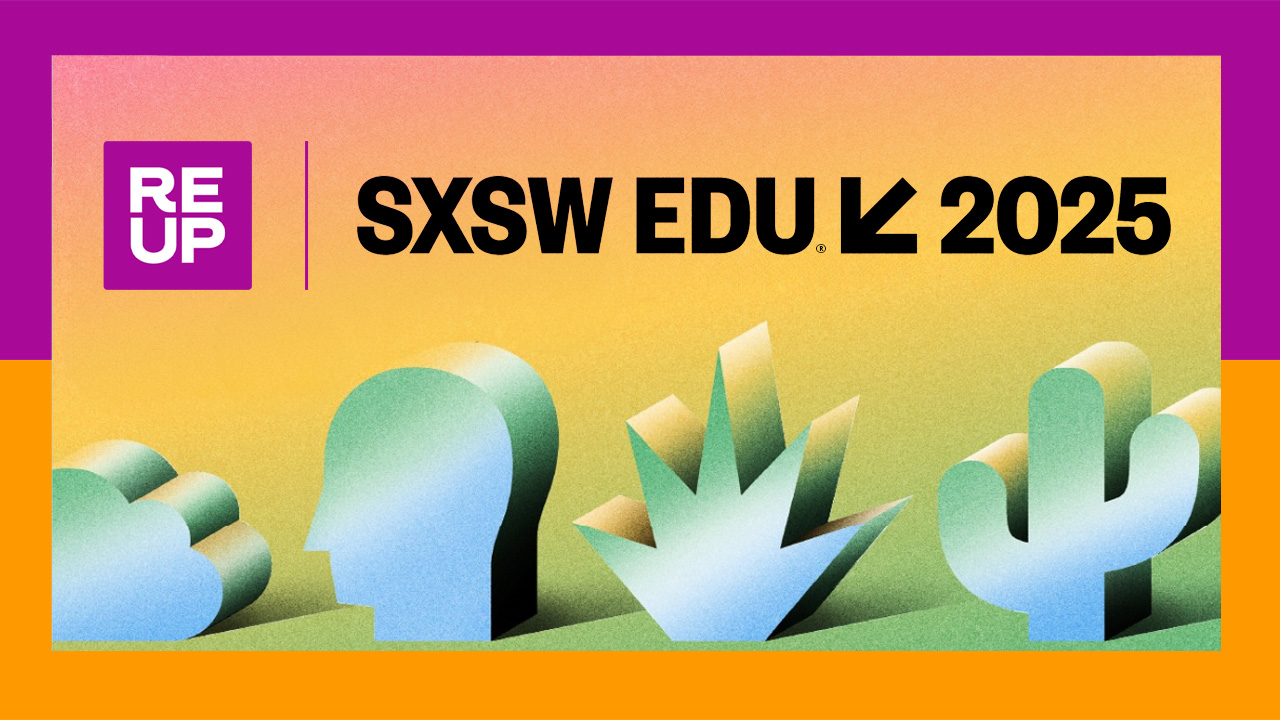Adapting to Change: Insights on AI and Workforce Development

Economic shifts and policy changes often disrupt traditional structures, but they also open doors for innovation.
Workforce development is evolving at an unprecedented pace. SXSW EDU 2025 brought together leaders from education, industry, and policy to tackle the big questions shaping this transformation. Christine Wyatt, COO at ReUp, joined Luis Felipe Rincon, Co-Founder and CSO of Acadeum; Sabari Raja, Managing Partner at JFFVentures; and moderator Haley Ast, Program Officer for K-12 Education at Stand Together, for a panel discussion, “Macro and Micro Trends in Workforce,” exploring the challenges and opportunities in workforce policy we face today.
Whether you’re an educator, employer, or policymaker, the themes discussed have a direct impact on how we prepare for the future of work. From leveraging AI to navigating economic uncertainty, the insights shared can help us reimagine education and workforce strategies in ways that empower individuals and strengthen communities.
Thriving in uncertainty
Uncertainty has become a constant, but that doesn’t mean progress is out of reach. Economic shifts and policy changes often disrupt traditional structures, but they also open doors for innovation.
During the panel discussion, Luis Rincon emphasized that private-sector partnerships are playing an increasingly important role in workforce development. “The new administration’s focus on private-sector-driven solutions is paving the way for investment and collaboration,” he said. By working together, we can rethink funding and training programs to meet current needs.
One promising area of bipartisan agreement is the expansion of non-degree pathways, including apprenticeships and skills-based hiring. Linking these efforts with reauthorizations like the Workforce Innovation and Opportunity Act and extending Pell Grants for short-term credentials can provide workers with the tools they need to adapt and thrive.
How AI is changing workforce development
Artificial intelligence (AI) is revolutionizing how we think about education and employment. It’s exciting and, at times, overwhelming. Yet its impact is undeniable.
Here’s how AI is already creating workforce innovation:
- Employers are using AI to streamline hiring processes, from screening resumes to matching candidates with roles that fit their skills.
- Job seekers are leveraging AI tools to fine-tune applications and access personalized career insights.
- On a broader scale, AI-driven platforms like Pace AI are reducing barriers to economic mobility, offering tools like skills mapping, language learning, and custom training programs.
The panel highlighted the human connection at the heart of AI’s potential: “AI isn’t just a tool. It’s a bridge to foster efficiencies, reduce friction, and facilitate meaningful human connections,” Sabari noted.
Even small- and medium-sized businesses have found ways to harness AI, adopting skills-based hiring practices and tools that allow them to remain competitive in an evolving market. Technology is increasingly democratizing opportunities, creating pathways for success across industries.
Turning challenges into opportunities
Even with external headwinds, companies are finding tailwinds that allow for innovation and adaptability. Take AI and energy investment, for example, which remain national priorities due to security and sustainability needs. These areas not only drive funding, but also inspire groundbreaking advancements.
Key strategies organizations are using to succeed during challenging times include:
- Investing in people through upskilling and training programs that deliver measurable ROI.
- Exploring flexible funding by seeking state-level partnerships or diversifying revenue streams.
- Leveraging technology to amplify impact and reach underserved populations, including adult learners who may have paused their education.
Luis pointed to vertical SaaS tools, like Besolo, as examples of how entrepreneurs and small businesses can create meaningful community impact while scaling their ventures.
However, funding remains a challenge. State-level partnerships may feel more secure than depending entirely on federal- or grant-based resources. Companies that are flexible and can demonstrate both impact and scalability will be better positioned to weather economic storms.
Building an AI-integrated workforce
The conversations at SXSW EDU 2025 underscored one truth: moving forward requires collaboration. By aligning policies, technology, and community efforts, we can build a workforce that’s not only resilient, but also inclusive and innovative.
Helping workers succeed means meeting them where they are. Whether that’s through re-engaging adult learners or designing data-informed strategies for skills development, the focus must remain on both individual and collective progress. The future of work is ours to shape. With intentional efforts, thoughtful policies, and creative problem-solving, we can equip today’s workers for tomorrow’s challenges.
Key takeaways
- Thriving in uncertainty requires innovative workforce development strategies like leveraging private-sector partnerships and expanding non-degree pathways to career success.
- AI-driven workforce solutions are transforming hiring and skill development, making AI literacy an essential skill for job seekers and employers.
- Investment in upskilling for adult learners, targeted funding, and skills-based hiring practices can create opportunities even in challenging economic conditions.
- Collaboration across sectors is key to building a resilient workforce equipped for the future.
For more insights and strategies on workforce development and higher education, find us on LinkedIn.
Let’s start the conversation
Schedule a call with a ReUp team member to learn more about what a ReUp partnership could do for your institution.